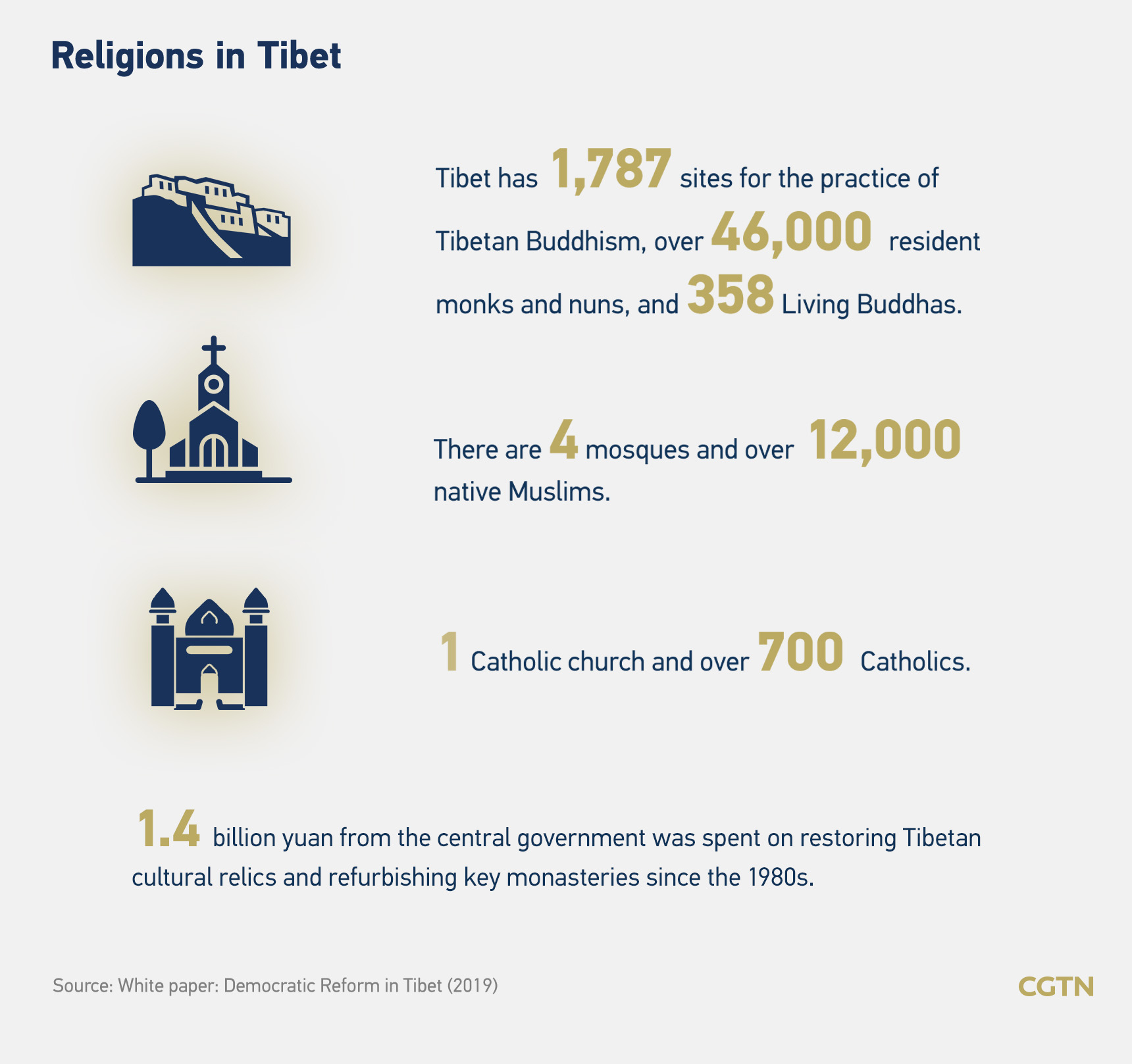An international seminar on "Tibet Social Development and Human Rights Protection" was held in Chongqing Tuesday where experts and scholars from China, Pakistan, Nepal and other countries reviewed the progress of Tibet's social development and human rights protection in the past 60 years.
The seminar, consisted of two themes "Achievements and Prospects for Tibet's Eradication of Poverty" and "Tibet's Social Changes and Human Rights Progress," and was one of the 44 sessions of the "Cloud Meeting" of the United Nations Human Rights Council.
The seminar pointed out that the right to survival is well protected in China's Tibet Autonomous Region with full access to medical care, transportation, and basic needs such as water, electricity, and education.
Sun Hongnian, deputy director of the China Border Research Institute under the Chinese Academy of Social Sciences, hailed the remarkable achievement made in livelihood and human rights.
Read more:
From theocracy to democracy: A glimpse of religious freedom and reform in Tibet

From 1980 to 2018, financial assistance from the central budget totaled 1.24 trillion yuan, accounting for 91 percent of Tibet's financial expenditure. Besides, other provinces, municipalities and autonomous regions also started their assistance to Tibet in the 1960s.
By the end of 2019, 628,000 poor people together with 74 poverty-stricken counties in Tibet had been lifted out of poverty.
Since the 1980s, the central government has invested more than 1.4 billion yuan in large-scale repairs of Tibetan cultural relics and key temples.
In terms of religious belief, the seminar stressed that the freedom of religious belief is recognized and protected by relevant laws. Venues for religious activities are also repaired regularly, it added.
People of all ethnic groups in Tibet can freely carry out religious activities based on their religious traditions, it noted.
People in Tibet should have a voice in the social development and situation of human rights in Tibet, said Zhang Yonghe, executive dean of the Institute of Human Rights of Southwest University of Political Science and Law, adding "The satisfaction of the people and the strong sense of well-being of the people are the best human rights. The world is obvious to all."